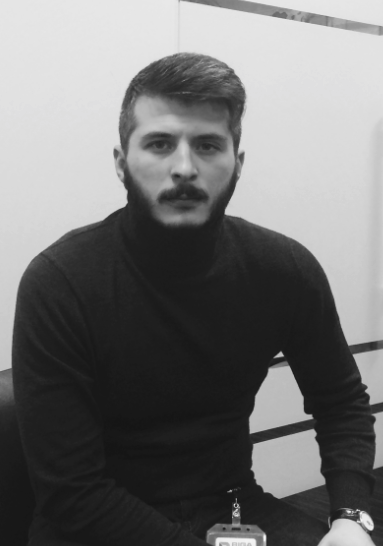 Interview with Ivan Sokolov, CEO of Biogenesis
Interview with Ivan Sokolov, CEO of Biogenesis
Tell us how Biogenesis project started
The issue of waste processing in Russia is particularly urgent: about 70 million tons of waste are generated annually in our country. Just imagine, in terms of volume, this can be compared to 10 Pyramids of Cheops! And it is mostly food waste (22%). Unfortunately, in Russia, the majority of waste is buried, and only 6% is processed into materials. At the same time, the problem of food scarcity is emerging: as the world population is expected to reach 9 billion in 2050, food production must be doubled.
Even now livestock and poultry farming in many countries, including Russia, is facing deficiency in feed protein. The increase in world’s population and well-being will most likely lead to the increased consumption of meat and fish, 70% higher compared to the current level. The growth in the number of livestock of agricultural animals will be limited by deficiency of feed protein.
This was the main reason for creating the company and our goal is to try to solve two global problems simulataneously: organic waste production and feed protein deficiency. The initial idea came way back in 2014. However, it took us several years to gather detailed information through market research as well as to refine and improve our own technology. Last year we launched our first pilot production.
What’s your monthly production at the moment?
At the moment we are producing 12 tons of concentrated protein per month.
What products are you marketing?
Our flagship product is the feed additive “Biogenesis protein”. It is a protein powder with a protein content of up to 65%, an ideal source of digestible amino acids for fish and poultry. The protein component is an excellent source of essential amino acids, comparing favorably to less sustainable animal-derived ingredients such as poultry by-product meal and fishmeal. Moreover, the effectiveness of our product has been proved by independent trials on aquaculture and poultry. Other products that have already entered the market are whole dried larvae, Biogenesis oil and organic fertilizer (Zoocompost Biogenesis).
Our partners range from regional fish farms to large feed producers. Our key sales market is Russia, however, recently we have started receiving many interesting offers from foreign companies, which we are currently considering.
Do you need any kind of authroization to work with insects as feed in Russia?
We had to register our protein as a feed additive in the Ministry of Agriculture of the Russian Federation. Also, the confirmation of product’s safety and effectiveness is required, which we have already completed after conducting a series of preclinical and clinical studies.
Is the market growing fast enough in relation to your business needs?
Livestock breeding is actively developing in Russia, which serves as an excellent base for our business. In addition, huge volumes of organic waste ensure that our business has a constant supply of raw materials. The major constraint for our business is the underdeveloped legal framework in our country. Although the technology of bioprocessing is just beginning to develop in Russia, a number of successful established companies in other countries do already exist and serve as a great example for us.
What do you expect for the near future?
We are planning to increase our production volumes in the near future. We are now designing an industrial site with a processing capacity of 150 tons of organic waste per day.
From our company’s perspective, we would seek to broad partnerships both with Russian and international companies. In addition, we are currently conducting some research in the field of biologically active substances and insect genetics. It is well known that the exoskeleton of insects serves as an excellent source of chitin and chitosan, which could be applied in many different areas, such as medicine, cosmetics, food industry and agriculture.
From a global point of view, we hope to raise awareness among population in Russia. We aim to popularize ecological knowledge and spread ecological culture which would hopefully promote the development of separate waste collection and waste processing in our country.





